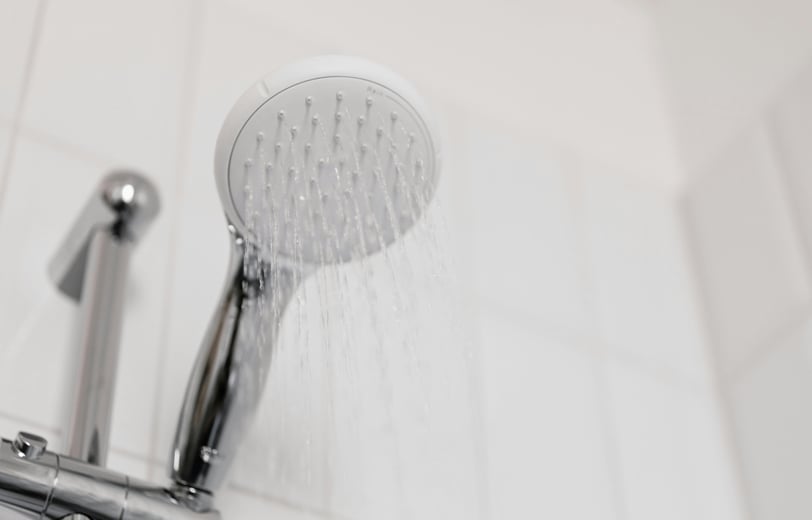Is It Safe to Take a Hot Shower During Pregnancy
Discover the risks and benefits of a hot shower during pregnancy. Learn safe practices to relax without overheating and keep you and your baby healthy throughout pregnancy.


Pregnancy is such a beautiful journey, full of excitement and changes. I’ve noticed that many expectant mothers find comfort in simple daily routines, like taking a warm shower to unwind. It’s one of those little things that can feel like a moment of peace in the midst of all the new experiences. But I know questions often pop up—especially when it comes to whether taking a hot shower during pregnancy is safe. In my opinion, understanding the potential risks and benefits can really help you make informed choices that keep both you and your baby safe and comfortable.
Understanding the Effects of a Hot Shower During Pregnancy
A hot shower during pregnancy can feel soothing, especially when dealing with fatigue, muscle aches, and stress. However, the impact of hot water on a pregnant woman’s body requires careful consideration. A significant concern is the potential for overheating, which can lead to complications. Additionally, hormonal changes can make women more sensitive to temperature, increasing the risks associated with prolonged exposure to hot water.
Risks of Taking a Hot Shower During Pregnancy
While warm showers can be beneficial, excessively hot showers during pregnancy can pose certain risks. Expecting mothers should be aware of these concerns and take precautions to maintain a safe experience.
Increased Core Body Temperature
Prolonged exposure to hot water can raise the body’s core temperature. Studies indicate that an internal temperature above 102.2°F (39°C) in early pregnancy may increase the risk of neural tube defects in the developing fetus. To minimize this risk, pregnant women should avoid prolonged exposure to excessively hot water.Dizziness and Low Blood Pressure
Pregnancy affects circulation, often making women more prone to dizziness and lightheadedness. Hot showers can dilate blood vessels, leading to a drop in blood pressure. This can cause sudden dizziness or fainting, increasing the risk of falls in the shower.Dehydration and Overheating
Hot water exposure can lead to excessive sweating, which may result in dehydration. Staying hydrated is crucial during pregnancy to support the growing baby and maintain proper circulation. If a pregnant woman experiences symptoms like dry mouth, dizziness, or dark urine after a hot shower, she should rehydrate immediately.
Benefits of a Warm Shower During Pregnancy
A hot shower during pregnancy may pose risks, but warm showers offer numerous benefits when taken at a safe temperature. Here are some positive effects of taking a warm shower while expecting:
Muscle Relaxation and Pain Relief
Pregnancy often brings discomfort, including back pain, swollen feet, and leg cramps. A warm shower helps improve circulation, relax tense muscles, and relieve pregnancy-related aches.Reduced Stress and Better Sleep
Warm showers can have a calming effect, reducing stress and promoting relaxation. Many pregnant women experience sleep disturbances due to hormonal changes and discomfort. Taking a warm shower before bedtime can help regulate body temperature and improve sleep quality.Alleviation of Congestion and Morning Sickness
Pregnant women may experience nasal congestion due to increased blood flow to mucous membranes. The steam from a warm shower can help open nasal passages, making breathing easier. Additionally, warm showers may ease nausea and discomfort associated with morning sickness.
How to Safely Take a Hot Shower During Pregnancy
If you enjoy taking a hot shower during pregnancy, there are several safety precautions to consider to ensure a comfortable and risk-free experience.
Monitor Water Temperature
Instead of using extremely hot water, aim for a moderate temperature around 98.6°F to 100°F (37°C to 38°C). Avoid scalding hot showers that can raise your core body temperature too high.Limit Shower Duration
Keep showers short, ideally between 10 to 15 minutes. Prolonged exposure to hot water increases the likelihood of overheating and dehydration.Stay Hydrated
Drink plenty of water before and after your shower to stay hydrated. This helps prevent dehydration and keeps your body temperature stable.Ensure Proper Ventilation
Make sure your bathroom is well-ventilated to prevent excess heat buildup. Use a fan or open a window to allow cool air to circulate.Use a Non-Slip Mat and Shower Chair if Needed
To reduce the risk of slipping or falling, consider using a non-slip mat or a shower chair, especially if you experience dizziness during pregnancy.
Alternatives to a Hot Shower During Pregnancy
If you’re concerned about the risks associated with a hot shower during pregnancy, consider these alternative methods to relax and unwind:
Lukewarm Baths
A lukewarm bath is a great alternative to a hot shower during pregnancy. Keep the water temperature below 100°F and avoid prolonged soaking to prevent overheating.Warm Compress for Pain Relief
If you experience localized pain or discomfort, applying a warm compress to sore muscles can provide relief without the risks of a hot shower.Prenatal Massage
A gentle prenatal massage from a certified therapist can help reduce stress, improve circulation, and relieve muscle tension safely during pregnancy.Foot Soak in Warm Water
If you have swollen feet or leg cramps, a foot soak in warm water with Epsom salt can provide relaxation and relief.
When to Consult a Doctor About Showering During Pregnancy
While taking a warm shower during pregnancy is generally safe, some women may experience unusual symptoms that require medical attention. Consult your doctor if you experience:
Dizziness, fainting, or sudden weakness in the shower
Excessive sweating or signs of overheating
Shortness of breath or palpitations
Any unusual pregnancy symptoms related to hot water exposure
I believe a warm shower can be a great way to relax during pregnancy, as long as a few precautions are taken. The key is to keep the water at a moderate temperature, limit shower time, and stay hydrated. I’ve noticed that while extremely hot showers might feel tempting, they can lead to overheating, dizziness, and dehydration—things best avoided during pregnancy.
That said, a warm shower can provide relief from aches, promote relaxation, and even improve sleep. In my opinion, expecting mothers should prioritize their comfort and safety, and if any concerns arise, checking in with a healthcare provider is always a good idea. By following simple guidelines, a soothing shower can remain a safe and enjoyable part of pregnancy.


